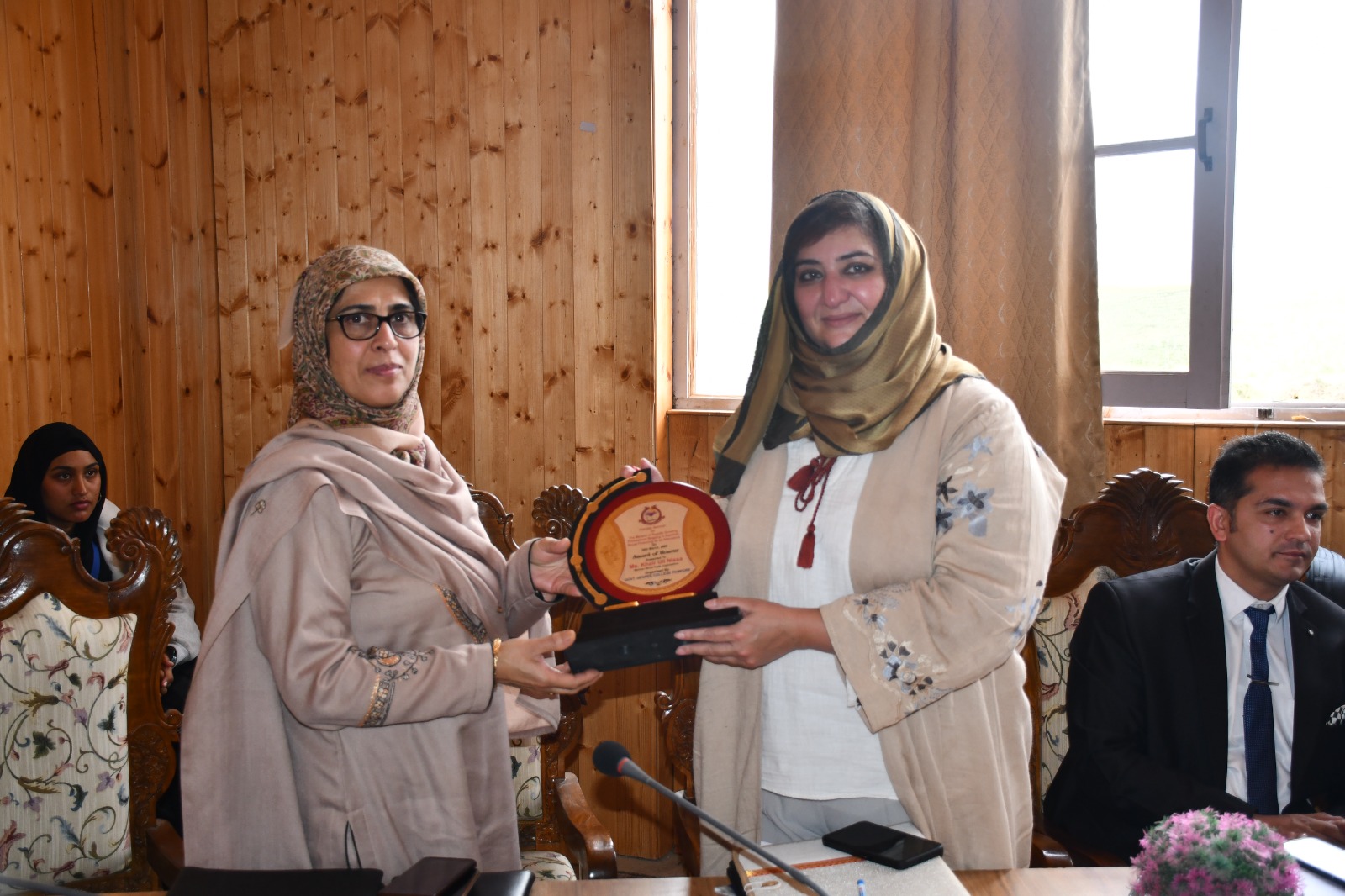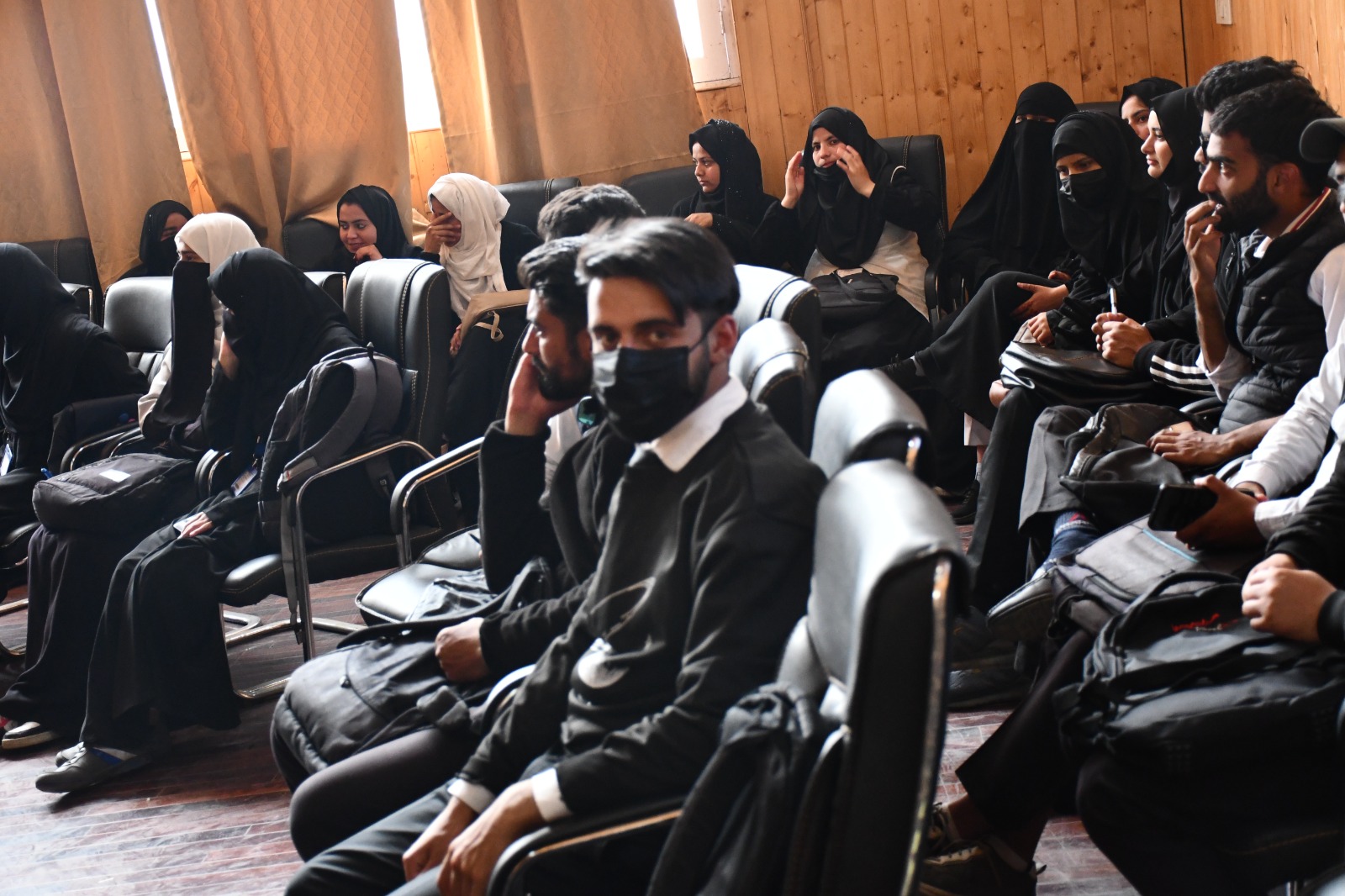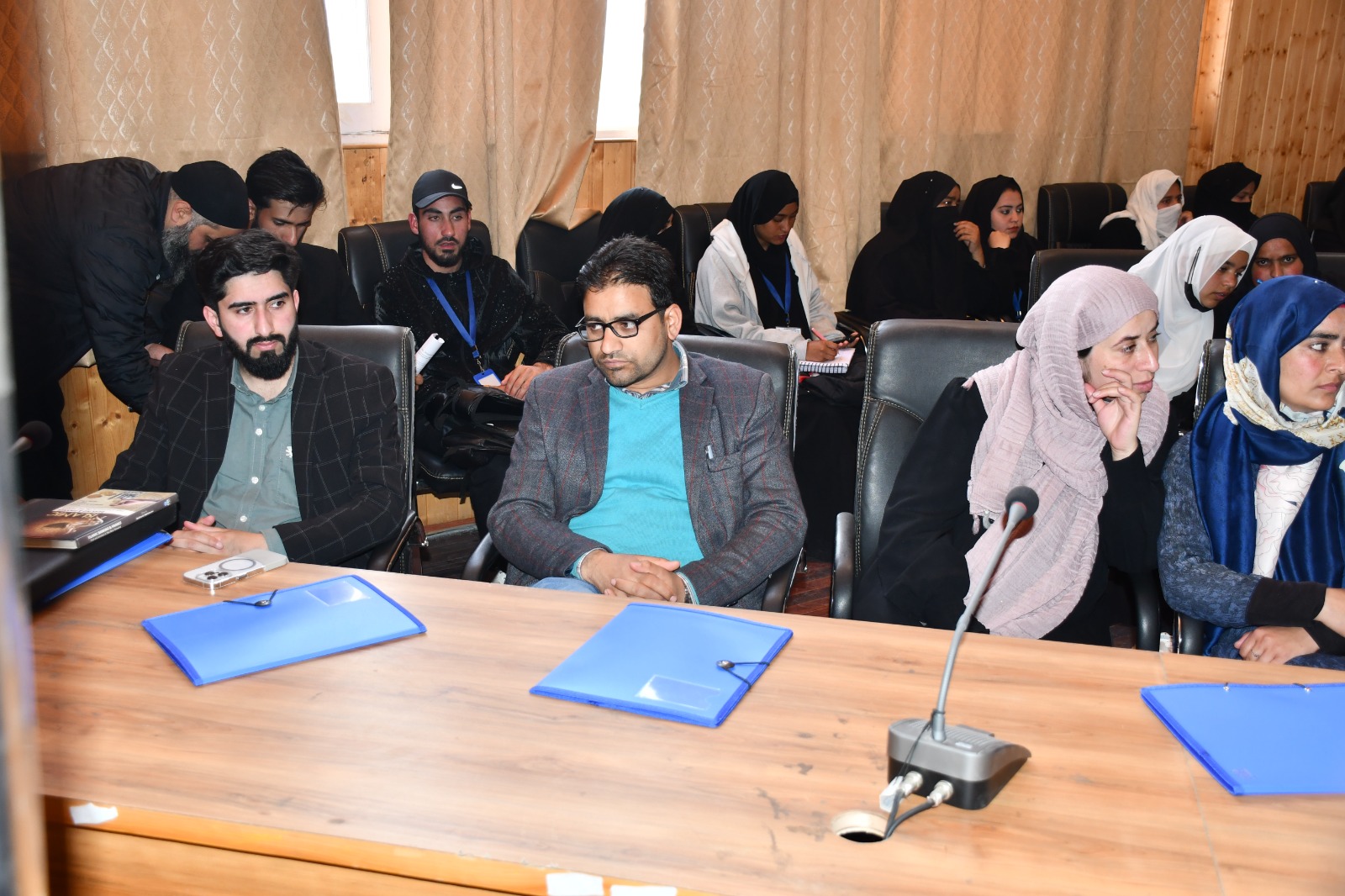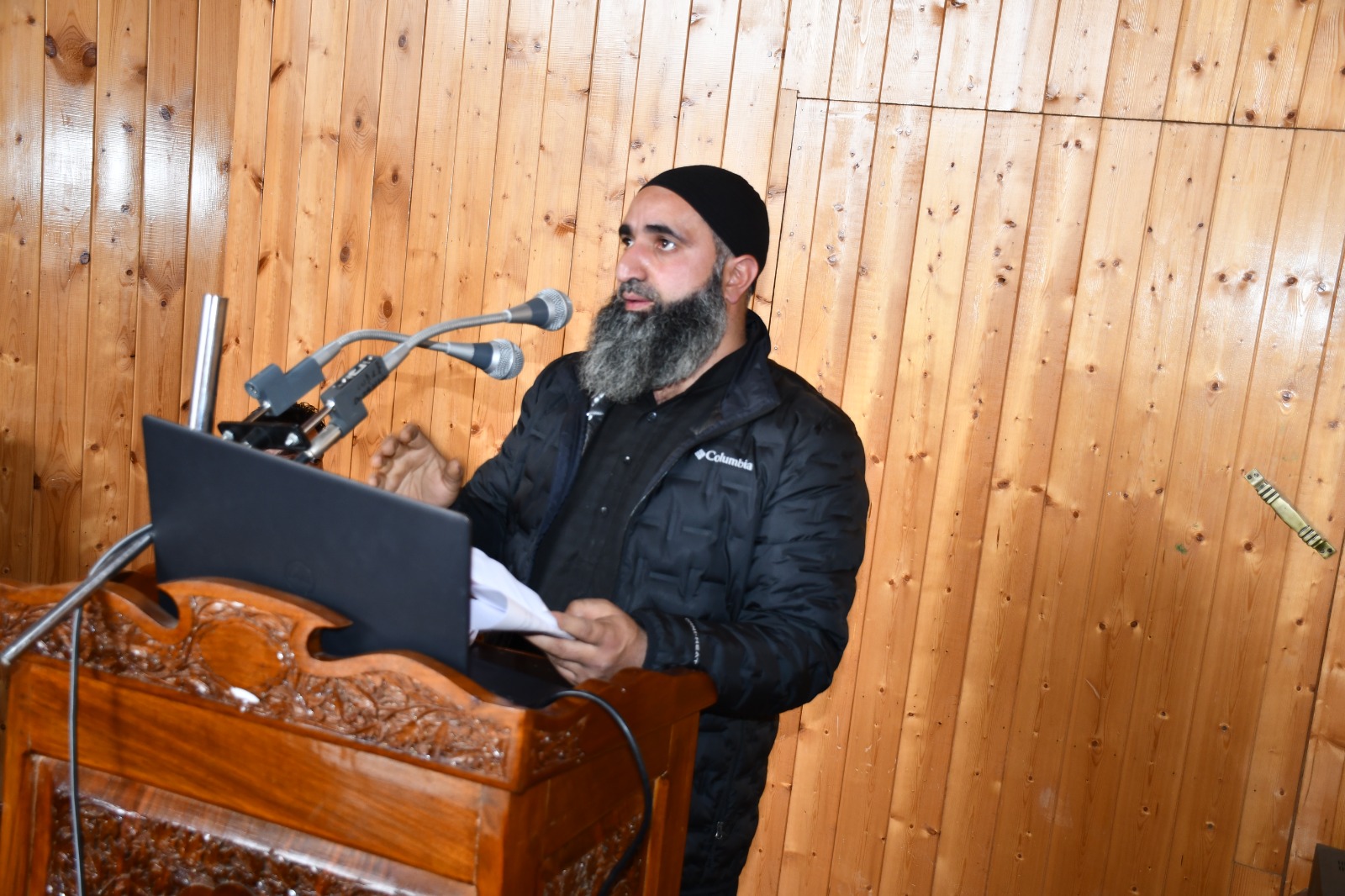One-Day Seminar on "The Menace of Rapidly Growing Professional Begging in Kashmir: Social Financing as an Alternative
The Department of Islamic Studies, in collaboration with the Departments of Commerce and Economics, along with the Debates & Seminar Committee of Govt. Degree College Pampore, organized a one-day seminar on "The Menace of Rapidly Growing Professional Begging in Kashmir: Social Financing as an Alternative" on 24th March 2025. The seminar aimed to address the pressing issue of professional begging in Kashmir and explore alternative solutions through social financing, particularly in the light of Islamic economic principles.
The seminar was moderated by Dr. Javaid Ahmad, faculty member of the Department of Islamic Studies. He provided an insightful introduction to the topic and formally introduced the guest speakers. The event commenced with a Tilawat-e-Kalam recited by Umair, a 2nd-semester student, setting a spiritual tone for the seminar. A good number of students and faculty members of GDC Pampore attended the event, reflecting a keen interest in the subject matter. The reporteur for the seminar was Dr. Aasif Ahmad, faculty member of the Department of English, who meticulously documented the discussions and key takeaways from the event.
The Chief Patron of the seminar, Prof. Safiya Khalil, Hon’ble Principal, GDC Pampore, delivered the welcome address. She warmly greeted the dignitaries and participants, highlighting the significance of addressing the growing issue of professional begging in Kashmir. She emphasized that with collective effort and strategic social financing, this issue can be mitigated. She also lauded the collaborative efforts of the departments involved in organizing the seminar.
1st Speaker: Mufti Mohammad Sultan Qasmi (Grand Mufti, Siraj-ul-Aloom)
Mufti Mohammad Sultan Qasmi elaborated on the historical and religious background of begging and why it has become a menace. He highlighted the role of Zakat in Islam, emphasizing that Zakat, if properly implemented within a community, can eliminate the need for professional begging. Citing examples from the lives of the Sahabah (Companions of the Prophet) and Prophets, he illustrated how they prioritized the needs of the underprivileged, sometimes going to the extent of sacrificing their own necessities for the welfare of others. He urged society to trust in Allah’s provisions and be grateful, ensuring that wealth is circulated among the needy rather than fostering a culture of dependence on begging.
2nd Speaker: Miss Khair-un-Nisa (WTO Member)
Miss Khair-un-Nisa engaged the audience with a global perspective on poverty and begging. She described the living conditions of the poor in refugee camps and makeshift shelters, based on her personal experiences with international organizations. She analyzed the positive and negative aspects of begging, particularly its rapid rise in Kashmir. She stressed that financial instability often pushes individuals toward unethical means of survival, making social financing a crucial alternative. She also reinforced the importance of Zakat as an Islamic obligation that can serve as a powerful preventive mechanism against begging, ensuring that the financially disadvantaged have access to resources.
3rd Speaker: Dr. Mehboob Makhdumi (Philanthropist & Expert in Islamic Finance)
Dr. Mehboob Makhdumi delivered an intellectually stimulating speech, incorporating historical and economic perspectives on begging. He discussed global statistics related to professional begging and introduced the audience to the Nobel Laureate Muhammad Yunus of Bangladesh, who established a microfinance bank that provided interest-free loans and skill development opportunities to the underprivileged. He emphasized that professional begging has turned into a business model, with individuals exploiting it for profit. His speech underscored the importance of Islamic financial tools such as Zakat, Sadaqah, and Corporate Social Responsibility (CSR) tax exemptions to effectively address this social problem.
The seminar concluded with a vote of thanks by Dr. Mohammad Iqbal Malik, Head, Department of Islamic Studies. He expressed his gratitude to all guest speakers, faculty members, students, and organizers for making the seminar a success. He reiterated the importance of channeling Zakat and other charitable resources toward sustainable economic upliftment rather than fostering dependence on begging.
The seminar provided deep insights into the causes and consequences of professional begging in Kashmir, while also exploring Islamic and economic solutions through social financing. The discussions underscored the collective responsibility of society in ensuring that financial aid reaches those in need in a structured and dignified manner.
The event concluded with a strong commitment from the participants to raise awareness and work towards eradicating professional begging through strategic social financing and ethical financial practices.
-

ONE DAY SEMINAR ON SOCIAL FINANCE
-

ONE DAY SEMINAR ON SOCIAL FINANCE
-

ONE DAY SEMINAR ON SOCIAL FINANCE
-

ONE DAY SEMINAR ON SOCIAL FINANCE